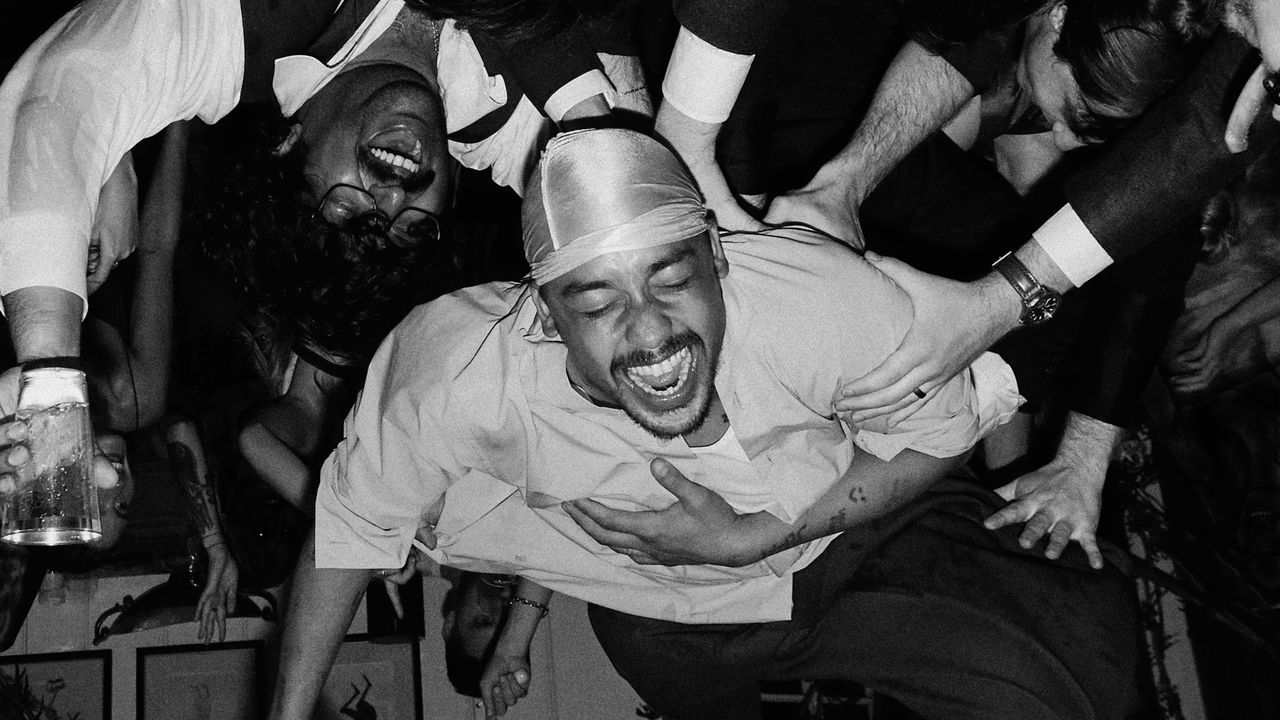When he released his debut solo album, 2021’s Absolutely, Dijon Duenas put out an accompanying live video of him performing in what appears to be the room of a house. He and a small collective of musicians, including regular collaborator Michael Gordon, who performs as Mk.gee, orbit a dining table swarming with instruments, half-empty beer bottles, and coffee cups. At first, it seems like too minimal a setup to convey Dijon’s dense, abstracted soul music with any fidelity, but it works because, as filled with esoteric detail as his music can be, it is fundamentally homespun—something that can be made by a few people in a room. Of course, the camera pans back to reveal they’re playing on a set in a studio.
The songs on his new album, Baby, feel more like many rooms all at once. From one instant to the next, you find yourself in a completely different soundworld, a gentle sunlit environment giving way to a space painted entirely black and lit by piercing artificial lights. On Absolutely, this sort of contrast was only faintly gestured at, a dark cloud of whimsy and chaos framing the tender scenes of desire and longing within.
On Baby, surprise-released just months after his high-profile contributions to this year’s Justin Bieber record SWAG, the cloud has descended. Harsh staticky rifts split the world into chunks on which one can often only briefly gain purchase. Lyrics arrive in fragments too distorted to easily discern. (When you can hear them, they describe domesticity in what feel like chaotic outbursts: sex, having children, experiencing an enduring love that annihilates your insecurities despite it containing its own chaos and uncertainty.) Reverb is applied so generously that you are aware of every sound’s echo as well as its slow-motion decay, refracted thousands of times as if in a broken mirror. All of these elements present a vision of R&B that is pure collage: past, present, and future colliding in their most jagged configurations. If you can see the seams, the raw edges of each sound element pasted roughly onto the canvas of the record, that’s because the seams are the point.
As with his colleague mk.gee’s work, there is something figural and fugitive about Dijon’s songwriting, something that changes or disappears as soon as you begin to apprehend it. It can provide immediate pleasures, like lithe and funky rhythmic beds, or hooks that work their way into your memory even though they sometimes fight through several layers to get there. But all this deconstruction allows the songs on Baby to escape any predictable shape they may have otherwise taken. They leak out and pool and dissolve in such quick successive movements that it’s as if they were recorded in time-lapse.
